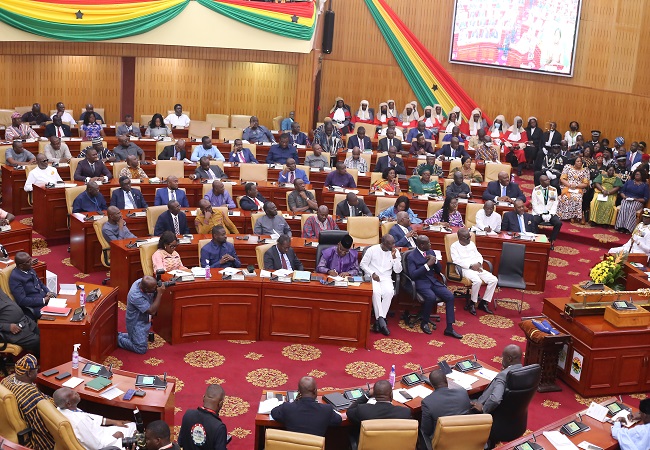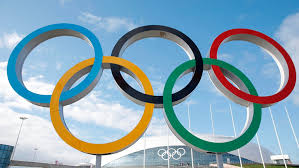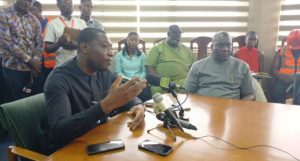The NDC Minority in Parliament has kicked against a legislative instrument (L.I.) to restrict the importation of 22 selected strategic products, including guts, bladders and stomachs of animals, into the country.
The other products are noodles & pasta, animal & vegetable oils, rice, poultry, margarine, fruit juices, soft drinks, mineral water, ceramics, corrugated paper and paper board, and mosquito coil and insecticides.
The rest are soaps & detergents, motor cars, iron and steel, cement, polymers (plastics and plastic products), fish, sugar, clothing and apparel, biscuits, and canned tomatoes.
The Minister of Trade and Industry, K.T. Hammond, brought the Export and Import (Restrictions on Importation of Selected Strategic Products) Regulations, 2023, to the House for consideration, which the Minority does not want to be laid, citing quorum.
Minority Leader, Dr. Ato Forson said his side had issues with the regulation and would want it to be put on ice.
But the Majority Leader, Osei Kyei-Mensah-Bonsu, countered it and said presentation of papers (Regulation) has nothing to do with numbers of MPs on the floor.
Speaker Alban Bagbin accordingly asked the two leaders to resolve whatever differences they have.
“You know the import of laying [legislative] instruments. That is why I said you should try and resolve it, but definitely, laying of an instrument or papers has nothing to do with numbers, but because of the nature of the instrument to be made and the constitutional and legal effect of laying,” he asserted.
Meanwhile, the Minority Leader earlier told the media in Parliament yesterday that the government intended to restrict the importation of these items in order to give jobs to its cronies.
Reasons
But the Trade and Industry Minister, K. T. Hammond believes this is not the case.
He complained, during his vetting, about the importation of some of these products which substitutes can be produced locally.
He disclosed that the country loses more than $164,570,000 a year to the importation of animal products such as guts, bladders, and stomachs (other than fish).
“Why is it that everything that you can think about is being imported to this country, which has a terrible effect on our currency?” he quizzed and added, “It is about time we took a serious look at this particular issue.”
Responding to questions from the Appointments Committee of Parliament, Mr. Hammond stated that the cabinet had discussed the issue of import substitutions for some of these products.
“In October last year, a committee was put together by the cabinet to specifically deal with these matters, and when I looked at some of the issues raised, I was scandalised.
“It has been decided at that level that we should look at 50 specific areas where it is important to look at the issue of import substitution,” he asserted.
Mr. Hammond, who is the NPP MP for Adansi-Asokwa, explained, “What I found scandalised is what appeared in paragraph 4 of the items they have listed. We are importing guts, bladders, stomachs of animals to Ghana to complement our food, and that alone in that year in question is about $164,570,000.”
“I thought this was a little bit of a scandal, but a committee was put together and a decision has been made that we should, as a country, seriously consider as much as possible to institute some policies to ensure that we have some substitution for some of these items,” he said.
According to him, other food items such as rice and beverages that are on the list of items being considered for import substitution are also scandalous, noting that rice alone is costing the nation millions of dollars.
Mr. Hammond said he also discovered that some people smuggled rice into the country, asserting that if one subtracts how much is produced locally from how much the nation consumes, there is a gap of approximately 600 metric tons that have been consumed but not accounted for through the system.
In addition, the government believes that there should be some sanity in the system when it comes to used vehicles, clothing, and other items, he stated, and added, “I have a very clear view in my own mind on what should be done. I am obviously encouraged by what I have read in the government’s document.”
K.T. Hammond said it is a sad state of affairs regarding Ghana’s imports, but indicated that based on what he had read, he was encouraged that he would be in exceptional company to change things for the better.
He revealed that the cabinet had already taken clear decisions on what should be done in the area of import substitution at the textile front, intimating that Juapong Textile Company and Akosombo Textile Company have almost collapsed.
“The committee has been tasked to ensure that whatever is immediately available, financially possible and reasonable should be done by those responsible – especially the Ministry of Trade to ensure that these companies are brought back to life,” he said.
Source:dailyguidenetwork










